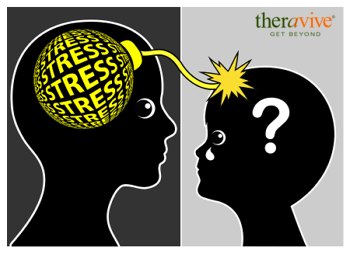 Being a parent encounters great responsibility. The
responsibility is not only great because you are caring for an infant or child
that cannot tend to itself or protect itself. Responsibility is so great
because the parent is responsible for the total development of the child. In
order to be able to give a child the best they can have to develop into a
responsible psychology healthy well-being, the parent has to be responsible for
themselves as well. When parenting a child a variety of emotions can be elicit
and proper regulation of parental emotions are essential. When parental
emotions are not regulated, the child becomes vulnerable to their parental
figures behaviors. In such case, Noraidah Mohd Yussof injured her child out of
anger because the child could not recite the number 11 to 18 in Malay.
Being a parent encounters great responsibility. The
responsibility is not only great because you are caring for an infant or child
that cannot tend to itself or protect itself. Responsibility is so great
because the parent is responsible for the total development of the child. In
order to be able to give a child the best they can have to develop into a
responsible psychology healthy well-being, the parent has to be responsible for
themselves as well. When parenting a child a variety of emotions can be elicit
and proper regulation of parental emotions are essential. When parental
emotions are not regulated, the child becomes vulnerable to their parental
figures behaviors. In such case, Noraidah Mohd Yussof injured her child out of
anger because the child could not recite the number 11 to 18 in Malay.In the news…
On March 28, 2016, (Khan, 2016) Noraidah Mohd Yussof pleaded
guilty to two counts of assaults which lead to serious injuries and death to
her son. This is not Noraidah Mohd Yussof's first time involved in the legal
system due to injury of a child. In March of 2012, (Khan, 2016) Noraidah Mohd
Yussof became angry when her son was unable to recite the alphabets. She was so
angry that she pushed him, stepped on his ribs, and twisted and pulled his
hands. Days later she took him to the hospital where he was diagnosis with
having fractures to his elbow and his ribs.
The son was removed from the home and placed with family members due
to the intervention of The Ministry of Family and Social Development.
In August 2015, (Khan, 2016) Noraidah Mohd Yussof picked up
her son from school and after lunch asked him to recite his numbers in English
and Malay where he recited them incorrectly from 11 to 18. She pushed him
resulting in him hitting his head. He attempted to recite them again correctly
and failed, resulted in her pushing him and stepping on him. A third attempt,
he got them wrong, resulted in her choking and pushing him against the wall
where he passed out. She lied to her family members that she found him in the
bathroom unresponsive. The child underwent emergency surgery where he died four
days later; he was only 4 years old.
Parenting at Risk
Parenting at Risk is a term that identifies a person who has
a child who is in risk of faulty parenting due to parental depression, poverty,
adolescent motherhood, parental substance and alcohol abuse, and maltreating parents
(Teti & Cole, 2011). Studies have
been conducted where “emotionally positive parents are happier, more socially
competent, and have lower rates of behavior problems than do children of
parents with low levels of expressed positive and/or high level of negative
emotion, and that such linkages transcend race, ethnicity, and socioeconomic
status (Teti & Cole, 2011, p. 627). However there have not been many studies
conducted on parent’s emotions in action of parenting referred to as “parenting
in the moment (Teti & Cole, 2011, p. 628).”
Child Oriented vs. Parent Oriented
A parent may have very good self-regulation of their emotions,
generally speaking. However, when a child engages in behavior and the parent is
engaged with that child (parenting in the moment) that parent may not be as
competent in self-regulating their emotions as previously stated. The reason is
based on the parent’s orientation. Is the parent, child-oriented or
parent-oriented?
Child-Oriented (Teti & Cole, 2011) is when the parent’s
concern is that of the child and the behavior of the child is innocent.
Parent-Oriented (Teti & Cole, 2011) is when the parent’s concern is of themselves,
the parent, and the child’s behavior is more looked at as intentionally disrespect
or disobeying the parent. An example is that a parent walks into the kitchen,
and their child spilled a gallon on milk all over the floor. The
child-orientated parent looks at that situation as the child not having the
skill to manage the heavy gallon and milk, and clean up begins. The
parent-oriented parent looks at the situation as the child deliberately dropped
the gallon of milk to mess up the floor the parent spent a good amount of time
cleaning yesterday. This parent may be more
incline to use physical punishment verses discipline with the child.
In the case with Noraidah Mohd Yussof, her child’s behavior
when unable to recite his alphabets and numbers in English and Malay correctly
from a child-oriented concern, it may have resulted in her assisting him in developing that memorization skill or learning
new strategies to recite the numbers correctly.
By her looking at the child’s behavior from a parent-oriented concern,
the child intentionally failed to recite them correctly and wasted her time
that she spent with him learning them correctly. From a parent-oriented concern, the child is
to be punished. The degree to which Noraidah Mohd Yussof used punishment as a reinforcement
to learn was inappropriate, maladaptive, and abusive. It is very healthy for a
parent to be aware that they are unable to control their emotions while
parenting and seek assistance to develop better parenting skills.
References
Khan, S. (2016) Woman kills four-year-old sonby choking and
stomping on him. Yahoo news. Retrieved
from https://www.yahoo.com/news/mum-pleaded-guilty-to-causing-grievous-hurt-082106137.html?partner=CHEETAH.
Mence, M., Hawes, D.J., Wedgewood, L. Morgan, S., Barnett,
B., & Kohloff, J. (2011). Emotional flooding and hostile discipline in the
families of toddlers with disruptive behavior problems. Journal of Family
Psychology, Vol. 28 (1), 12 – 21.
Teti, D. M. & Cole, P.M. (2011). Parenting at risk: New
perspectives, new approaches. Journal of Family Psychology. Vol. 25. (5), Oct, 2011 pp. 625-634.
About the Author

Henry M. Pittman
, MAHenry M. Pittman came into the field of counseling through substance use disorders in the fall of 1997. He was a substance abuse tech at a hospital in Houston, TX and what he saw motivated him to take all the counseling hours needed to become a substance abuse counselor in 1998. Since then he has pursed the required education and knowledge to become a master level counselor and therapist.
Office Location:
7807 Long Point Dr, Ste 215
Houston, Texas
77055
United States
Phone: 800-419-2568
Contact Henry M. Pittman
Professional Website:
www.therapeuticallc.com